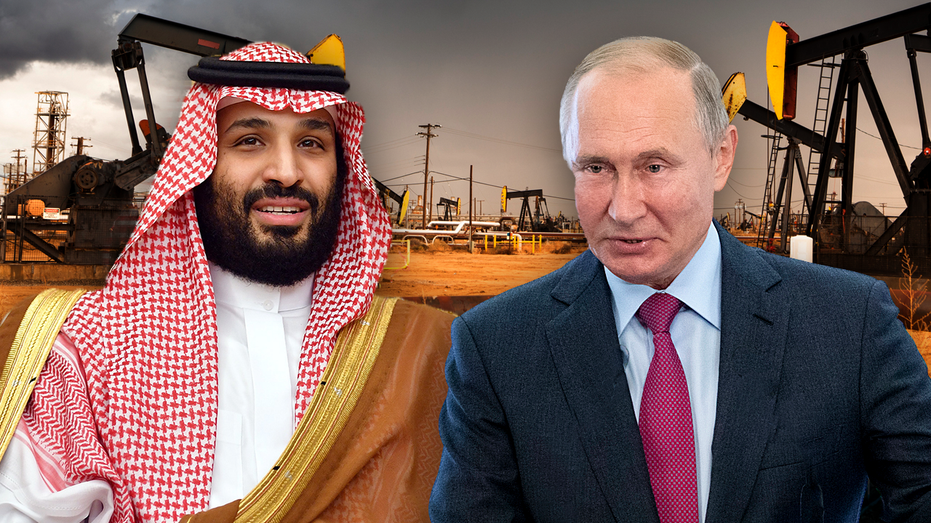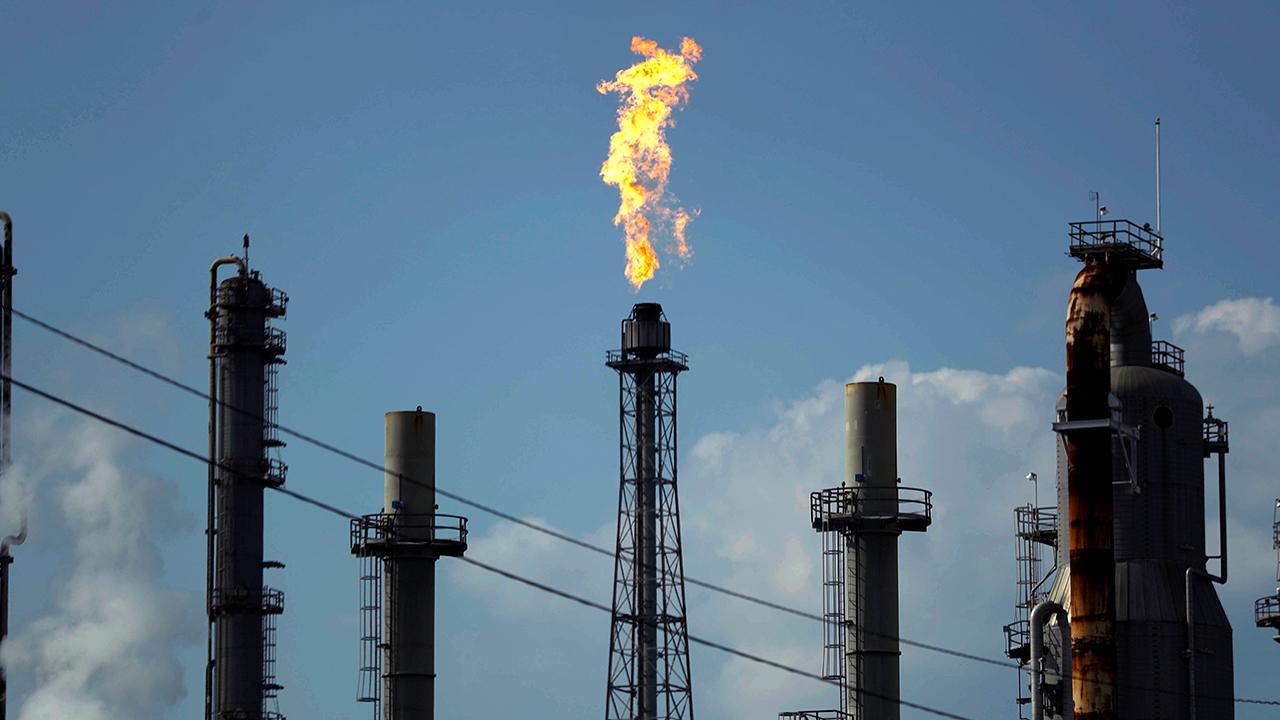OPEC, Russia to extend record oil cuts to end of July: Draft deal
'We cannot afford to rest on our laurels'
OPEC, Russia and allies were set on Saturday to extend record oil production cuts until the end of July after crude prices doubled in the past two months on the back of their efforts to withdraw almost 10% of global supplies from the market.
According to a draft declaration seen by Reuters as a video conference opened, the group known as OPEC+ was also set to demand countries such as Nigeria and Iraq which exceeded quotas in May and June compensate with extra cuts in July to September.
GET FOX BUSINESS ON THE GO BY CLICKING HERE
OPEC+ had initially agreed in April that it would cut supply by 9.7 million barrels per day (bpd) during May-June to prop up prices that collapsed due to the coronavirus crisis. Those cuts were due to taper to 7.7 million bpd from July to December.
Benchmark Brent crude climbed to a three-month high on Friday above $42 a barrel, after diving below $20 in April. Prices still remain a third lower than at the end of 2019.
"Despite the progress achieved to date, we cannot afford to rest on our laurels,'' Algerian Energy Minister Mohamed Arkab, the current OPEC president, said as he opened Saturday's talks.

The draft OPEC+ declaration said a joint ministerial monitoring committee, known as the JMMC, would now meet every month until December to review the market and recommend levels of cuts. The next meeting is scheduled for June 18.
Two OPEC sources said the group had already agreed to a one-month extension to cuts that have been made by its members.
Ahead of the talks, OPEC sources said Riyadh had been considering an extension to August or even December.
OIL SPIKES AS OPEC+ NEARS EXTENSION OF OUTPUT CUTS
Saudi Arabia, OPEC's de facto leader, and Russia have to perform a balancing act of pushing up oil prices to meet their budget needs while not driving them much above $50 a barrel to avoid encouraging a resurgence of rival U.S. shale production.
The April deal was agreed under pressure from U.S. President Donald Trump, who wants to avoid U.S. oil industry bankruptcies.
Trump, who previously threatened to pull U.S. troops out of Saudi Arabia if Riyadh did not act, spoke to the Russian and Saudi leaders before Saturday's talks, saying he was happy with the price recovery.
"As President Trump faces a re-election vote in November, he could well end up calling for a production increase from the OPEC+ partners, in contrast to the steep reductions he personally sought in early April when the oil demand collapse was at its worst,'' said Ann-Louise Hittle from Wood Mackenzie.
As global lockdown restrictions to halt the spread of the coronavirus are being eased, oil demand is expected to exceed supply sometime in July but OPEC has yet to clear 1 billion barrels of excess oil inventories accumulated since March.
Nigeria's petroleum ministry said Abuja backed the idea of compensating for its excessive output in May and June.
Iraq, which had one of the worst compliance rates in May, also agreed to additional cuts, OPEC sources said, although it was not clear how Baghdad would reach agreement with oil majors in the country on curbing output.
Iraq overproduced by 520,000 bpd in May, Nigeria by 120,000, Angola by 130,000, Kazakhstan by 180,000 and Russia by 100,000 bpd, according to OPEC+ data.
